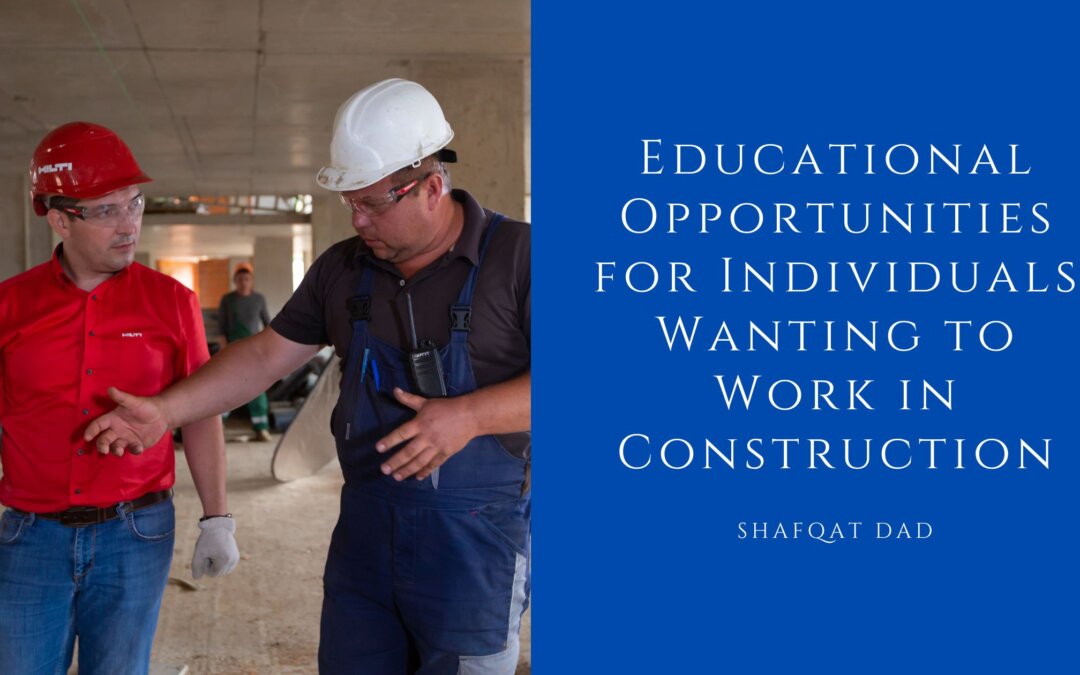The construction industry, known for shaping skylines and developing infrastructures, presents many career opportunities. While many assume that hands-on experience is the sole entryway, modern construction demands a blend of practical knowledge and formal education. If you aspire to join this dynamic industry, understanding the available educational paths can set you apart and boost your career trajectory.
Historically, construction was a trade passed down through generations, with skills learned on-site. As technology advanced and projects grew more complex, the need for formalized training became evident. Today’s construction industry encompasses various roles, from on-ground labor to project management and specialized functions like construction engineering. These roles demand varying levels of knowledge, skills, and qualifications. Consequently, institutions worldwide now offer diverse programs, from vocational courses to advanced degrees, to equip aspiring professionals with the necessary competencies for the evolving construction landscape.
Vocational and Trade Schools
Vocational and trade schools provide an optimal starting point for those keen on mastering the hands-on aspects of construction. These institutions focus on imparting technical skills tailored for immediate industry application.
Courses often cover training for carpentry, masonry, electrical work, plumbing, and HVAC (heating, ventilation, and air conditioning). What distinguishes vocational schools is the emphasis on practical training. Typically, most learning occurs in workshops, simulating real-world construction scenarios.
Beyond skill development, these programs instill a safety-first mindset, which is essential in an industry where safety regulations are paramount. Graduates often leave with recognized certifications that enhance employability and may even offer a head start in apprenticeships, bridging the gap between education and the workforce.
Bachelor’s and Advanced Degrees
Pursuing bachelor’s or advanced degrees becomes essential for those envisioning roles beyond hands-on labor, such as project management, construction engineering, or architecture. Universities globally offer construction management degrees, which cover a blend of technical and managerial subjects.
These programs delve deep into construction materials, methods, budgeting, scheduling, and project management. Moreover, they explore the legalities of construction, including contracts, liabilities, and building regulations.
For further specialization, Master’s and Ph.D. programs offer research opportunities, often focusing on sustainable construction practices, advanced materials, or construction technology innovations. These advanced degrees often lead to leadership roles, academia, or specialized consulting positions.
Online Courses and Workshops
Online courses and workshops have become flexible educational options with the digital revolution. Platforms like Coursera, Udemy, and Khan Academy offer courses ranging from basic construction principles to advanced topics like Building Information Modeling (BIM).
Online education provides the advantage of learning at one’s pace, often with resources available for lifetime access. This format is particularly beneficial for professionals already in the field, looking to upskill or gain knowledge in specific areas.
Industry organizations and companies often host workshops on the latest tools, safety protocols, or innovative construction methods. These workshops provide learning opportunities and networking platforms, connecting attendees with industry experts and potential employers.
Embarking on a construction career in today’s age presents a spectrum of educational avenues. Whether it’s hands-on training at vocational schools, comprehensive knowledge from university degrees, or flexible online learning, there’s an option tailored for every aspiration. The evolving nature of construction, marked by technological advancements and sustainable practices, makes continuous learning imperative. As one navigates their construction career, leveraging these educational opportunities ensures professional growth and contributes to building structures that stand as legacies. With the proper education, the construction world opens up, promising a fulfilling and impactful career.

